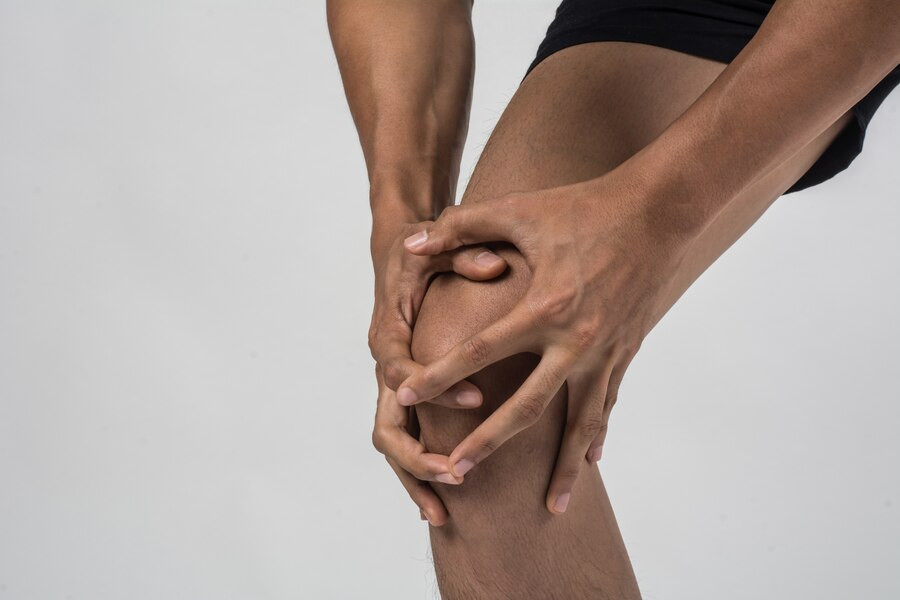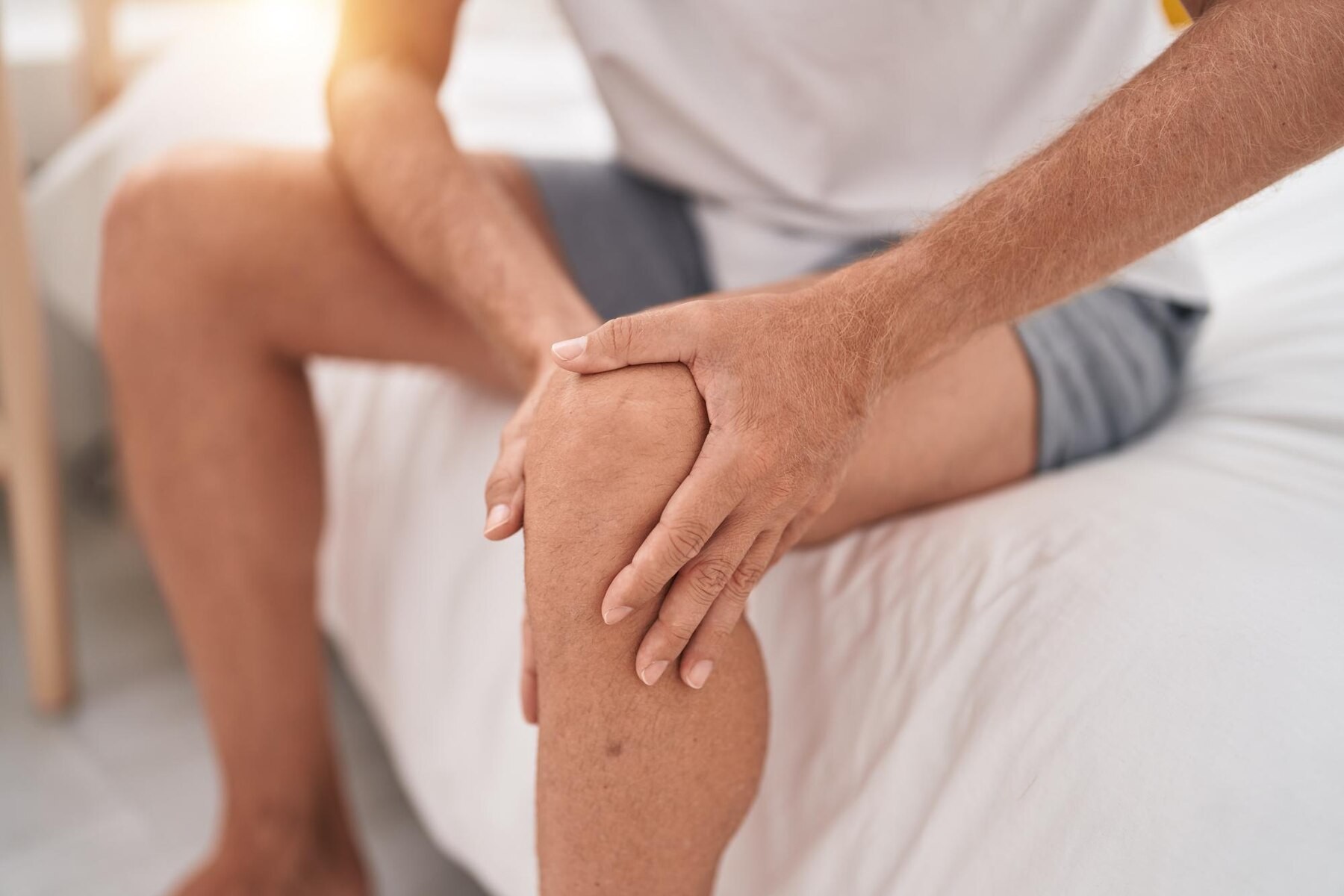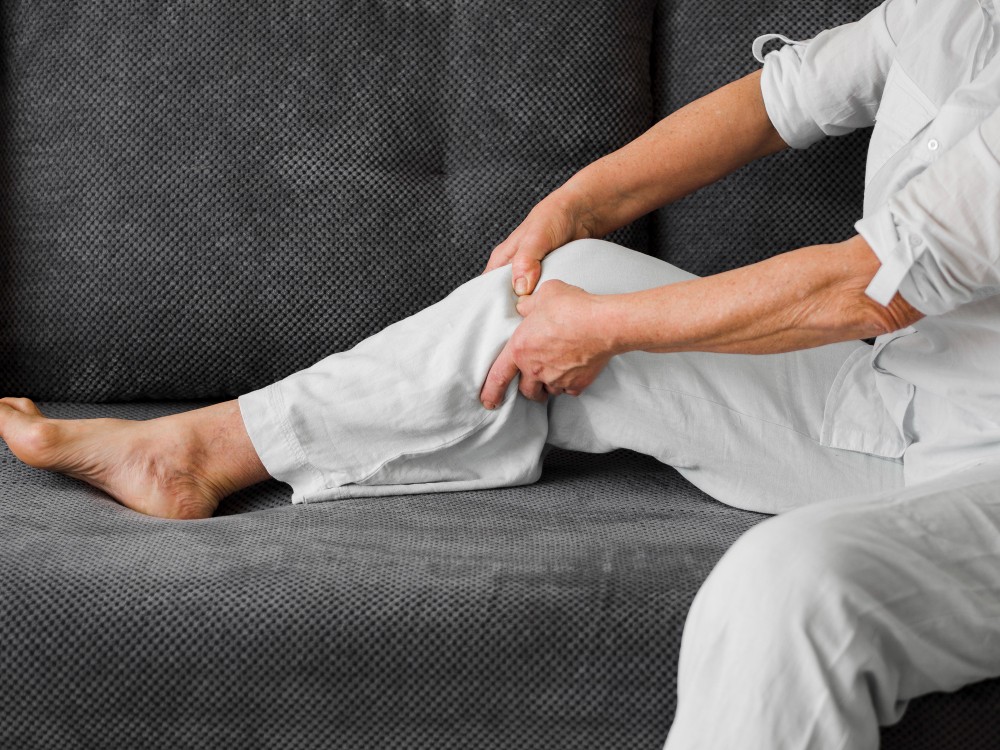Knee pain while walking can disrupt daily activities and can affect individuals of all ages, both men and women.
Knee pain when walking can be caused by various issues. Understanding the underlying causes and providing appropriate care is crucial to alleviating symptoms and resuming normal activities.
Causes of knee pain while walking
Knee pain while walking can result from several knee-related problems, including:
Ligament or muscle injuries
Injuries to the ligaments or muscles in the knee can be caused by various factors, such as direct blows, twists, and excessive movements. These injuries are usually defined by symptoms like:
- Sharp or dull pain in the knee
- Swelling
- Difficulty walking or maintaining stability
- Stiffness
- Trouble moving or bending the knee
Common ligament injuries involve the anterior cruciate ligament (ACL), posterior cruciate ligament (PCL), medial collateral ligament (MCL), or lateral collateral ligament (LCL). Muscle injuries might involve strains or tears in the surrounding muscles.
Meniscus tears
Tears in the cartilage, also known as meniscus tears, are common knee injuries. The meniscus is a cartilage cushion located between the thigh bone and the shin bone. Its functions as a cushion to absorb shock, enhance stability, and maintain alignment of the knee joint.
Trauma leading to meniscus tears can lead to:
- Pain, especially when bending or moving the knee
- Swelling
- Stiffness
- A sensation of the knee locking
- Instability while standing or walking
Tendinitis
Tendinitis is a condition where there is inflammation of a tendon, the tissue connecting muscles to bones. When this occurs in the knee, it is known as patellar tendinitis.
Patellar tendinitis happens due to excessive activities such as repetitive turning movements, jumping, or bending the knee. It is typically characterized by:
- Pain around the front of the knee
- Swelling
- Stiffness
- Pain when pressed or moved
- Limited range of motion
Arthritis
Arthritis, or joint inflammation, frequently affects the knee. There are two types of arthritis that can occur: osteoarthritis and rheumatoid arthritis.
-
Osteoarthritis: This involves the gradual wear and tear of the cartilage that lines the ends of bones within the joint, typically associated with natural aging. Factors like repetitive use, previous joint injuries, or excess weight can accelerate cartilage degradation.
-
Rheumatoid arthritis An autoimmune disease where the immune system attacks the joints, particularly the knees. This inflammation can damage the cartilage, causing pain, swelling, and even joint dysfunction.
Management of knee pain
To manage knee pain effectively, you can do the following steps:
- Avoid heavy activities and allow the joint to recover
- Use ice packs and elevate the knee on a pillow to reduce swelling
- Take anti-inflammatory medications, such as ibuprofen, as needed to relieve pain and inflammation
- If the pain persists, see a doctor or an orthopedic specialist
Do you have other questions about knee pain? You can make use of the consultation features that are available in the Ai Care application by downloading the Ai Care application from the App Store or Play Store.
Looking for more information about other diseases? Click here!
- dr Nadia Opmalina
John Hopkins Medicine. Knee Pain and Problems. Available from: https://www.hopkinsmedicine.org/health/conditions-and-diseases/knee-pain-and-problems
Kristin Mitchell and Sarah Vanbuskirk (2024). What’s Causing My Knee Pain?. Available from: https://www.webmd.com/pain-management/knee-pain/knee-pain-causes
Mayo Clinic (2023). Knee pain. Available from: https://www.mayoclinic.org/diseases-conditions/knee-pain/symptoms-causes/syc-20350849
Cleveland Clinic (2023). Knee Sprain. Available from: https://my.clevelandclinic.org/health/diseases/knee-sprain
Kathryn Whitbourne (2024). Meniscus Tear Knee Injury. Available from: https://www.webmd.com/pain-management/knee-pain/meniscus-tear-injury
Cleveland Clinic (2023). Tendonitis. Available from: https://my.clevelandclinic.org/health/diseases/10919-tendonitis
National Institute of Arthritis and Musculoskeletal and Skin Disease (2022). Arthritis. Available from: https://www.niams.nih.gov/health-topics/arthritis












